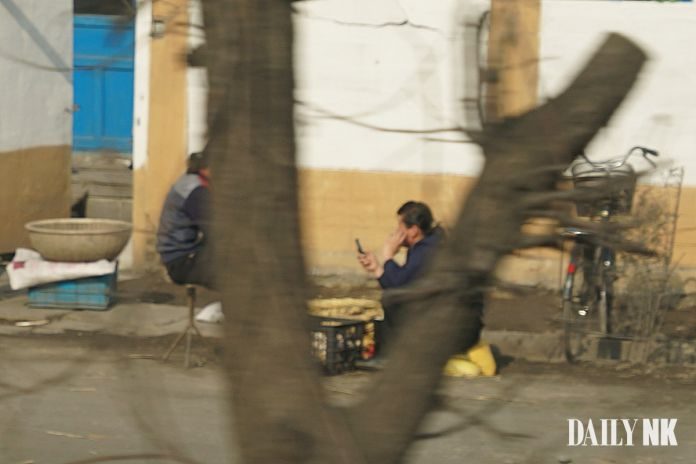North Koreans have access to dozens of genres of multi-player games, with some people even paying for features that are downloaded separately from the main games, Daily NK has learned.
A source in Pyongyang told Daily NK on Friday that there were about 30 kinds of multiplayer games available in the country, including horse racing, driving, Tetris, fishing, shooting, space exploration and school trips.
“People can play together using Bluetooth in a single classroom or a single room [within 10 to 15 meters of each other],” he said.
“Driving games are most popular with teens, space exploration games with those in their 20s, horse racing games with those in their 30s, and fishing games with people in their 40s,” the source added.
As more and more North Koreans have smartphones, the country has intensified its efforts to develop a range of applications, too. North Korean developers continue to create game apps, which are reportedly quite popular among smartphone users.
The source said people cannot simply download and install good game apps on their phones. Instead, he said it is “faster and better” to install the apps at “places where you can purchase them, such as mobile phone service centers or e-game service centers.”
In fact, some North Koreans are paying for downloable content (DLC) to increase the fun they can have with their games.
DLC refers to items, clothing, episodes and other content you can download in addition to the original game. Game companies sell DLC to earn additional profits over those from the original game. North Korean authorities, too, appear to be generating profits through the DLC model.
The source said in the case of fishing games, the base game costs USD 7, but to add more kinds of fish, users pay an extra USD 1 for each additional kind, or USD 2 for bass weighing 10 kilograms or more, not to mention other types of “high-end fish.”
As smartphone-based games grow in popularity in North Korea, this has led to the rise of various social issues, however.
“Teenagers are looking at their phones when they walk on the road, when they’re on the bus for field trips to revolutionary historic sites or revolutionary battle sites, and even when the guides at revolutionary battle sites are giving their lectures,” said the source.
“Since they are looking at their phones, they don’t greet local elders even when they run into them,” he added.
Based on the source’s report, it appears that “smartphone zombies” – people absorbed in their smartphones at the expense of everything around them – are commonplace in North Korea.
“Women in their 30s and 40s sit in the market and play smartphone games when they are not selling anything or have time to kill,” said the source. “They often ask one another what they are playing, and the trend these days is to try each of the latest games for fun.”
The source said several companies in Pyongyang and the provinces take a leading role in developing game apps.
“Research labs under the State Affairs Commission, research labs under the Ministry of Information Industry, Kim Il Sung University, Kim Chaek University of Technology, the Institute of Natural Science’s Automation Department, computer science universities and Pyongyang University of Science and Technology’s Programming and Information Lab are able to develop apps once they get state approval,” he said.
In short, the source’s report suggests that institutions other than existing specialized developers can make game apps as long they get permission from the state.
Please direct any comments or questions about this article to dailynkenglish@uni-media.net.


















